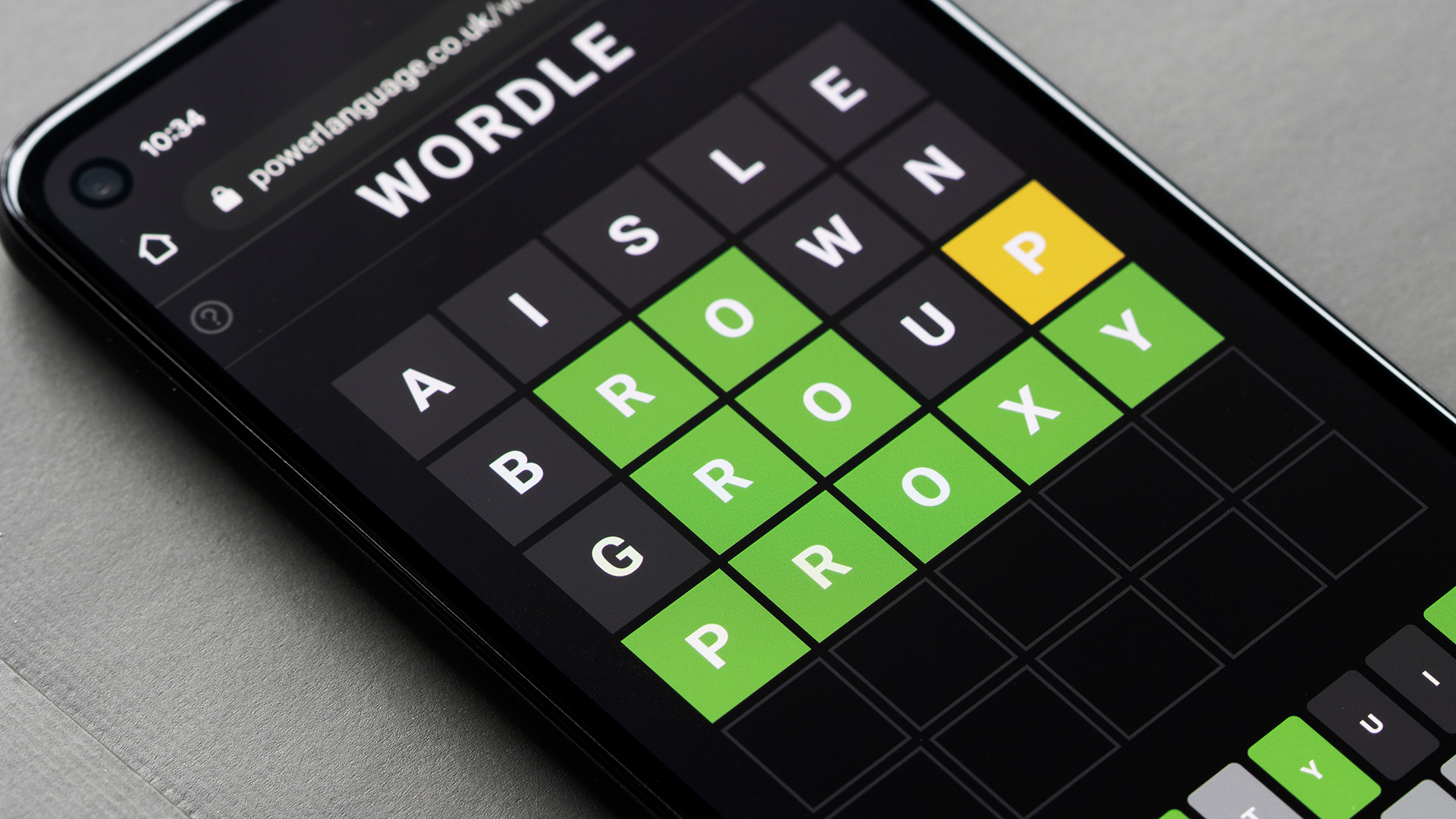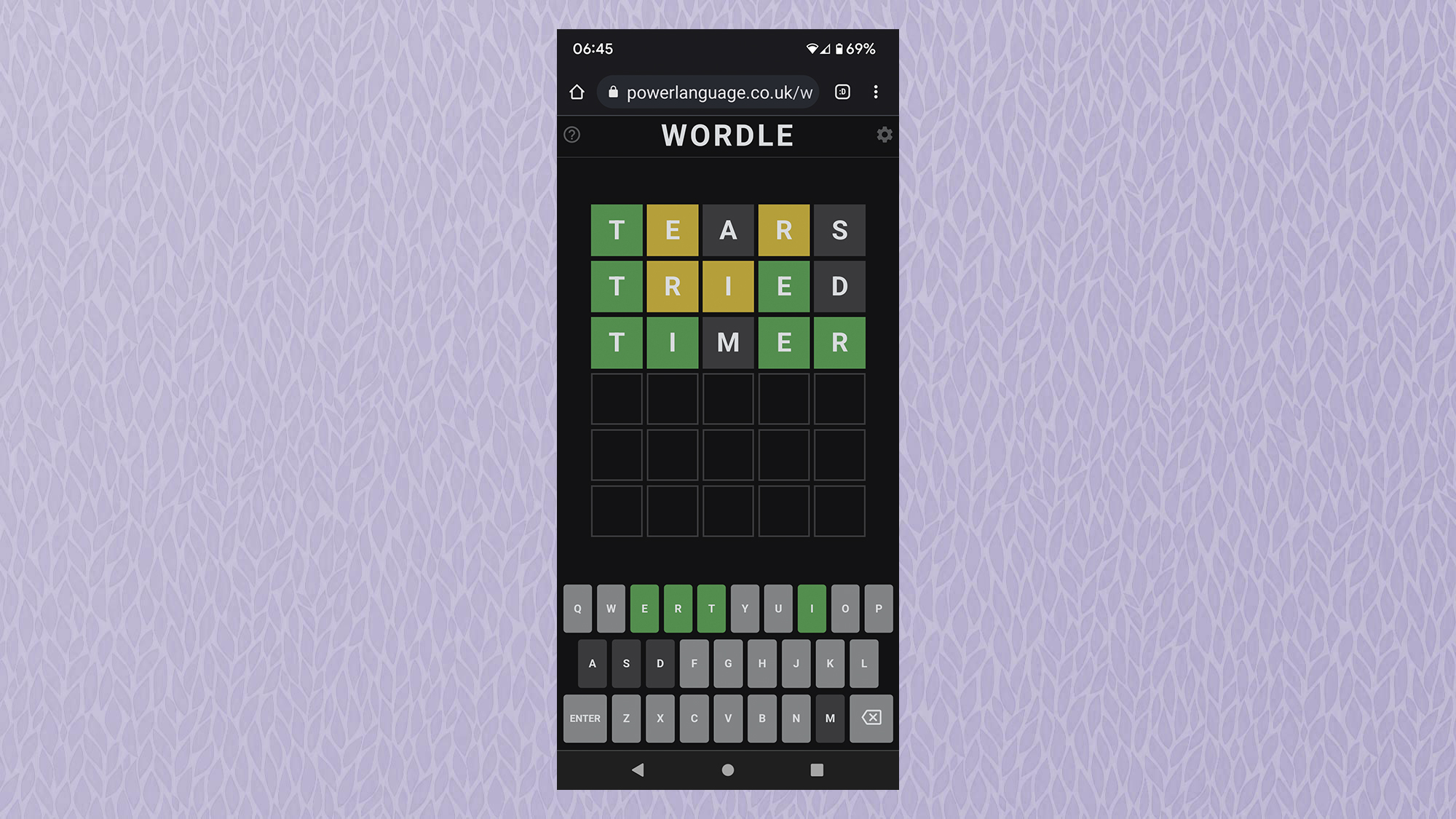The New York Times has just bought Wordle — what that means for you
Hit word game Wordle bought by the NYT but will stay free, for now

Today's Wordle word is… MONEY, after the viral sensation was sold to The New York Times for a reported seven-figure sum.
The purchase completes an incredible story that saw the game spring seemingly from nowhere at the turn of the year to the point where it now has more than one million daily players. It also represents a huge success for its sole developer, Josh Wardle, who created it for his partner only to see it become ubiquitous on Twitter and elsewhere over the past month.

Wardle, who works at Reddit as an engineer, shared the news on Twitter and said that he was “thrilled” that The New York Times “will be the stewards of the game moving forward” and that “this step feels very natural to me.”
"I've long admired the NYT's approach to their games and the respect with which they treat their players," he added, before confirming that "When the game moves to the NYT site it will be free to play for everyone and I am working with them to make sure your wins and streaks will be preserved."
An update on Wordle pic.twitter.com/TmHd0AIRLXJanuary 31, 2022
In a statement, Jonathan Knight, general manager for The New York Times Games, said that Wordle had "captured our collective imagination, and brought us all a little closer together."
"We could not be more thrilled to become the new home and proud stewards of this magical game, and are honored to help bring Josh Wardle’s cherished creation to more solvers in the months ahead,” he said.
What does this mean for Wordle players?
One of the reasons for Wordle's success has been the fact that it is free to play via a website and has no advertisements. There's no app, no in-app purchases and no attempt to monetize its players — it's simply an enjoyable way to pass the time each day. Although you can play Wordle multiple times per day if you know how.
Sign up to get the BEST of Tom's Guide direct to your inbox.
Get instant access to breaking news, the hottest reviews, great deals and helpful tips.
It's hardly surprising, then, that news of the purchase was instantly greeted with a flurry of negativity on Twitter, with many people seemingly upset at the prospect of the game eventually moving behind a paywall or being besieged by ads.
"Does anyone here actually think the NYT paid millions for this to keep it free?" read one tweet, with another claiming that this was the "beginning of the end for Wordle." And there are many more like those.
But is that really likely? For starters, both Wardle and The New York Times have stated that it will stay free. “When the game moves to The New York Times, Wordle will be free to play for new and existing players, and no changes will be made to its gameplay,” the newspaper promised.
That doesn't leave much room for movement — although it's possible the NYT could put it behind a paywall at a later date, as the statement could be interpreted as saying that it will be free when it moves, but not explicitly that it will be free for ever.
However, it seems more likely to me that the NYT will use Wordle as an opportunity to get more subscribers for other games which are being a paywall. As the NYT's statement puts it: "The Times remains focused on becoming the essential subscription for every English-speaking person seeking to understand and engage with the world. New York Times Games are a key part of that strategy."
If more than one million people per day are visiting NYT Games, there's a decent chance that some of them will also fancy playing Spelling Bee, completing the crossword or trying Tiles. And it would only need a small percentage to sign up at $40/year for the Times to make its money back from the Wordle purchase.
More likely is that it could get ads. There's no mention of them in the Times' statement, and other games on the site do have adverts, albeit not particularly intrusive ones.
There's also the question of what would have happened if Wordle hadn't been bought; Wardle had already told The Guardian that "I feel a sense of responsibility for the players. I feel I really owe it to them to keep things running and make sure everything’s working correctly.”
Without the purchase, then, it might have been closed down anyway — whereas this way we can keep playing, and that's got to be a good thing. On that front, we've put together some tips to help you get started with Wordle and a list of the best Wordle start words. And if you want to try something different we also have a list of the best Wordle alternatives.
Formerly Editor in Chief (U.K.) on Tom’s Guide, Marc oversaw all gaming, streaming, audio, TV, entertainment, how-to and cameras coverage, and was also responsible for the site’s U.K.-focused output. He is now U.K. Editor in Chief on TechRadar. Marc previously edited the tech website Stuff and has tested and written about phones, tablets, wearables, streaming boxes, smart home devices, Bluetooth speakers, headphones, games, TVs, cameras and much more. He also spent years on a music magazine, where his duties mainly involved spoiling other people’s fun, and on a car magazine. An avid photographer, he likes nothing better than taking pictures of very small things (bugs, his daughters) or very big things (distant galaxies). When he gets time, he also enjoys gaming (console and mobile), cycling and attempting to watch as much sport as any human can. He's also fallen in love with Wordle over the past six months and is the author of our today's Wordle answer column, in which he supplies hints and strategy tips for the mega-popular word game. Given he's completed every single Wordle so far and only lost once, and analyzed every Wordle answer in search of patterns, he's well qualified to help you safeguard your streak.

